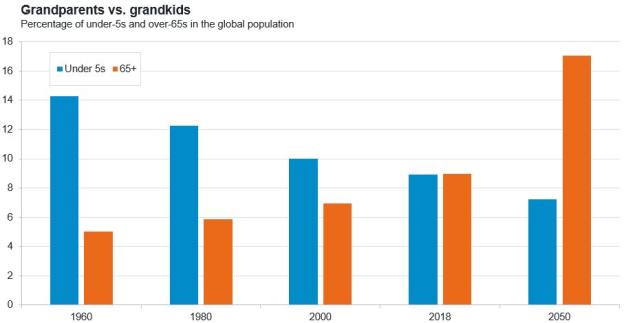PARTNER CONTENT by FIDELITY
This content was paid for and produced by FIDELITY
We believe global equity markets are facing crucial turning points, with several powerful trends that have driven markets over the last two decades seemingly at an inflection point. This will have significant implications for future market leadership.
Interest rates, which have been on the decline for nearly four decades, have increased sharply as central banks have sought to rein in surging inflation over 2022. Lower rates had cut the cost of capital driving valuations higher, particularly those of growth stocks. Meanwhile, the US dollar has recently fallen from its 20-year high as signs of inflation easing have fuelled speculation that the Fed will have to pause rate hikes.
This backdrop has already driven a dramatic change in markets with high-growth tech stocks selling off. Value stocks and sectors have started to outperform, and this could mark the start of a more sustained shift in market leadership.
Where next for valuations and earnings?
The Fed’s aggressive rate hiking cycle and quantitative tightening has led to a huge withdrawal of liquidity, leading to lower asset prices. US equity valuations are currently back to pre-pandemic levels, but are still slightly expensive compared to history, and close to long-term averages elsewhere.
Valuations are normalising

Source: Fidelity International, Bloomberg, 31 December 2022. The long-term P/E ratio chart shows regional equity markets relative valuation comparison across multiple business cycles with latest twelve-month forward price/earnings consensus estimates.
The next leg of the story for equity markets is likely to be driven by earnings. After a period of above-trend earnings growth and profit margins, we think an earnings correction is likely in 2023. We’re already seeing some early signs. For example, companies have started to guide more conservatively; we’re starting to see profit warnings among some early-cycle industries like consumer discretionary and there are increasing layoff announcements. These are clear signs that companies are feeling the pressure on profit margins.
A 20% correction would be in line with previous earnings downcycles observed over the last 50 years and would see earnings fall back to long-term trend-growth. This is a reasonable base-case scenario to us. The good news is this correction started last year and as more visibility emerges on the likely path of earnings over the coming months, we expect equity markets to resume growth in 2024.
Earnings drawdown coming

Source: Citi Research Global Equity Strategy, DataStream, 3 November 2022. The recreated chart shows the past 50-year global equities EPS data trend during the last 7 recessionary periods.
A watershed moment for sustainability
In an unpredictable world, the big question for investors is where can they find more certainty? We believe sustainable stocks provide this certainty and visibility as they address some of the biggest challenges we face as a global society - issues that need to be fixed, regardless of the short-term market outlook.
Our belief is that companies addressing some of our greatest environmental and social challenges will enjoy strong demand growth and stand to earn higher and more durable returns over time as a result. By being on the right side of policymakers and regulators they are also likely to enjoy lower long-term risk profiles. These companies therefore have potential to deliver strong returns to shareholders, whilst also being a driving force for positive societal change.
There is no doubt in our minds of the significant impact that sustainability factors will have on long-term value creation. Firstly, we’re all aware of the dramatic rise in global temperatures. This has all sorts of implications, but one very clear investment consequence is the rapid growth in renewable energy deployment as countries decarbonise. The International Energy Agency expects renewable power to surpass coal power generation by 2025 and we’ll add as much renewable power in the next five years as the last 20. For companies in the renewables value chain, the growth potential is substantial.
Another example is that shifting demographics will have a profound impact on the future. There are more elderly people than young children in the world and by 2050, there will be more than double the number of over-65s compared to under-5s. These demographic changes have implications for healthcare - in terms of overall demand, but also the need for continued innovation.
There are also important implications for resource intensity – to feed, house and care for this growing population we will need to do more with less. A falling proportion of working age people will also need more investment in automation and productivity tools as companies look to maintain margins and grow profits.
Certainty in the biggest changes we face

Source: Fidelity International, UN Population Division, 8 April 2019. The recreated chart shows the % of elderly people (65+ years) and young children (under 5s) in the global population. The percentage of over-65s surpassed that of under-fives at the end of 2018.
Navigating what happens next in markets
If the current environment of higher inflation, interest rates and economic volatility persists, we could be looking at quite a different decade ahead for market leadership. However, many long-term global sustainability trends remain unchanged and have been strengthened or accelerated by recent events.
Our process of combining in-depth sustainability and fundamental research with a strict valuation discipline leads us to invest in companies with strong financial profiles, backed by significant cash flow generation in the near term that provides a level of downside protection. We believe this approach will enable us to navigate volatile markets, while being well placed to capture the exciting long-term growth opportunities ahead.
Jamie Harvey, Portfolio Manager, Fidelity Sustainable Global Equity Fund
Learn more about the Fidelity Sustainable Global Equity Fund
Important information
This content is for investment professionals only.
Capital at risk. Investors should note that the views expressed may no longer be current and may have already been acted upon. Reference to specific securities should not be interpreted as a recommendation to buy or sell these securities, but is included for the purposes of illustration only. Changes in currency exchange rates may affect the value of an investment in overseas markets. Investments in emerging markets can be more volatile than other more developed markets. The Fidelity Sustainable Global Equity Fund has the potential of having high volatility either due to its composition or portfolio management techniques. It can also use financial derivative instruments for investment purposes, which may expose it to a higher degree of risk and can cause investments to experience larger than average price fluctuations. A focus on securities of companies which maintain strong environmental, social and governance ("ESG") credentials may result in a return that at times compares unfavourably to similar products without such focus. No representation nor warranty is made with respect to the fairness, accuracy or completeness of such credentials. The status of a security's ESG credentials can change over time. Issued by Financial Administration Services Limited and FIL Pensions Management, authorised and regulated by the Financial Conduct Authority. Fidelity, Fidelity International, the Fidelity International logo and F symbol are trademarks of FIL Limited. UKM0223/381124/SSO/NA
Find out more









